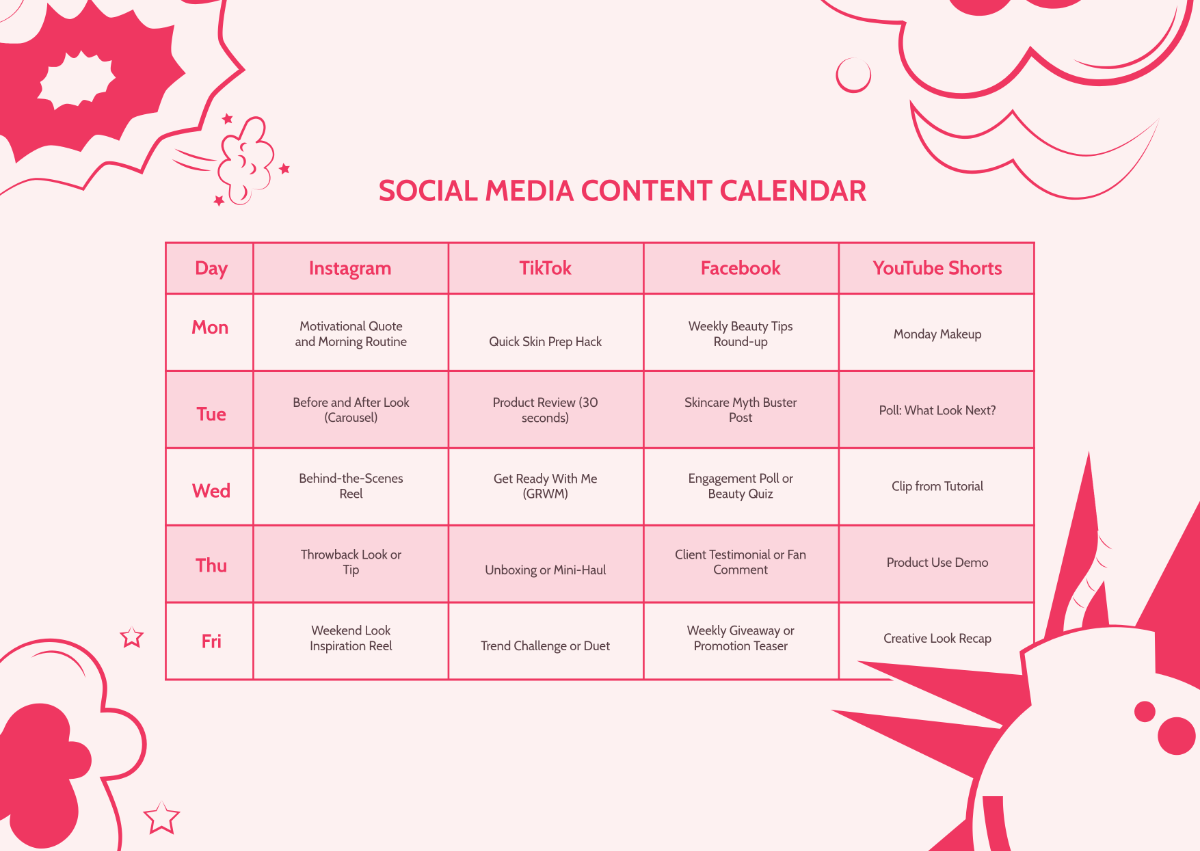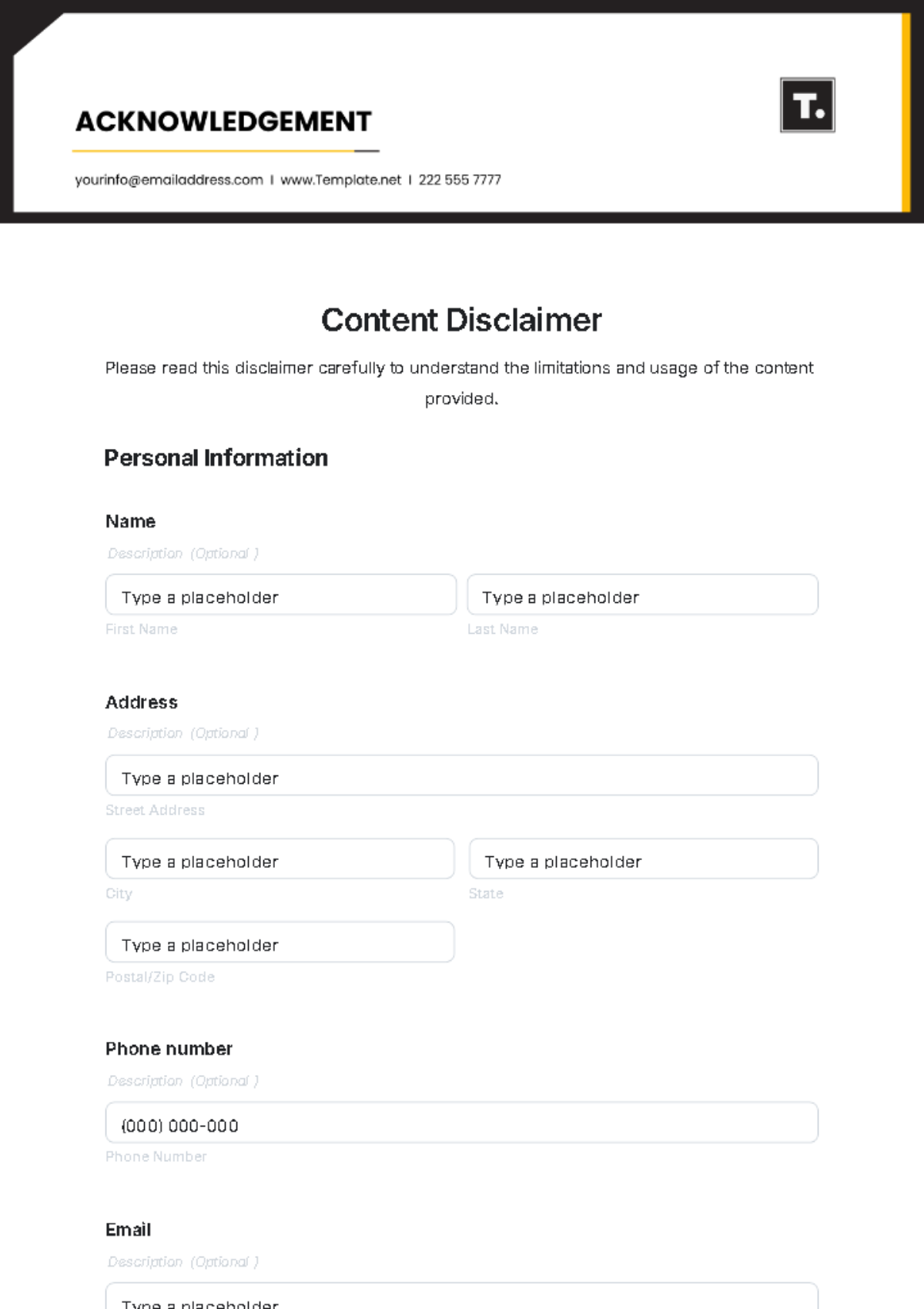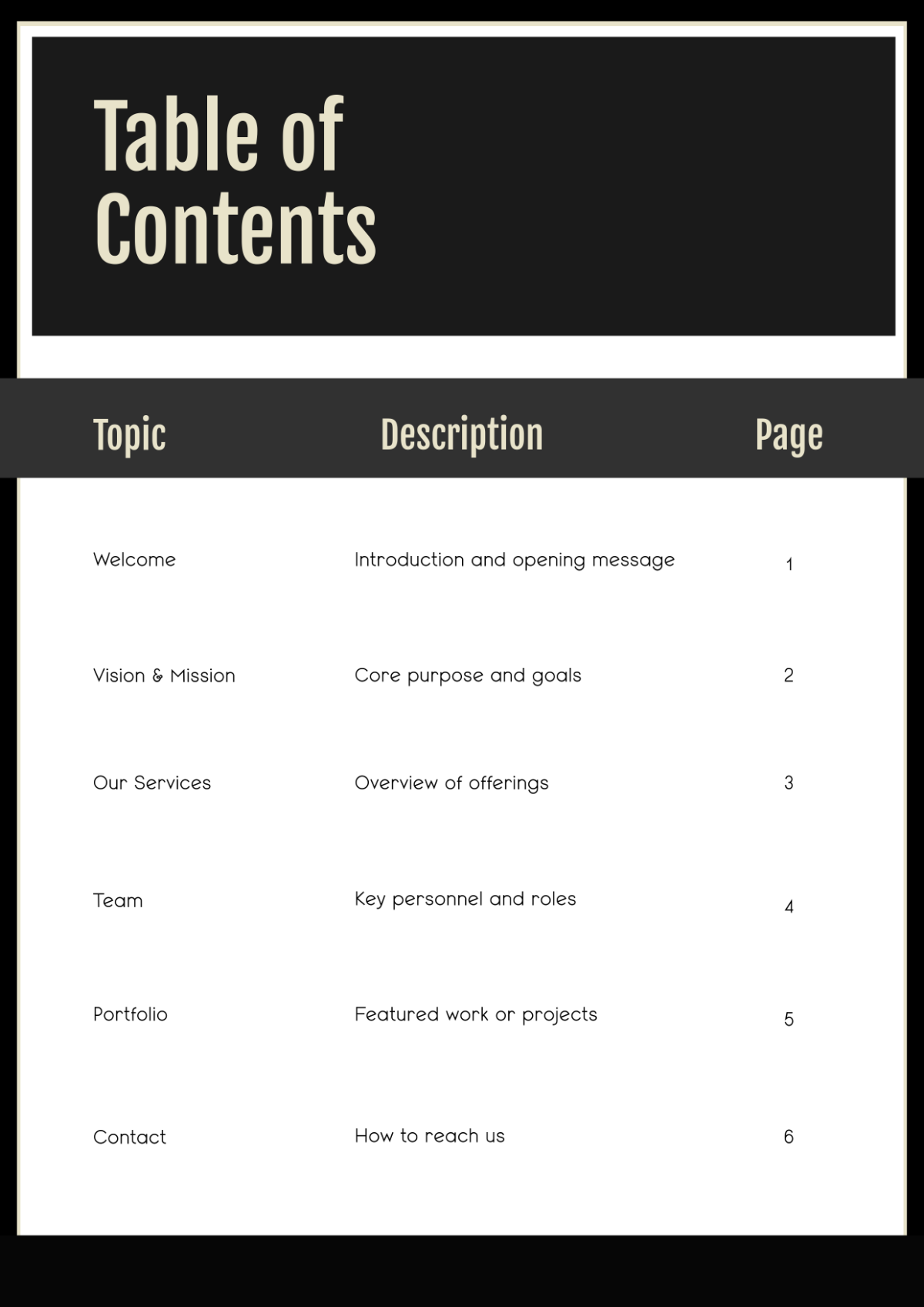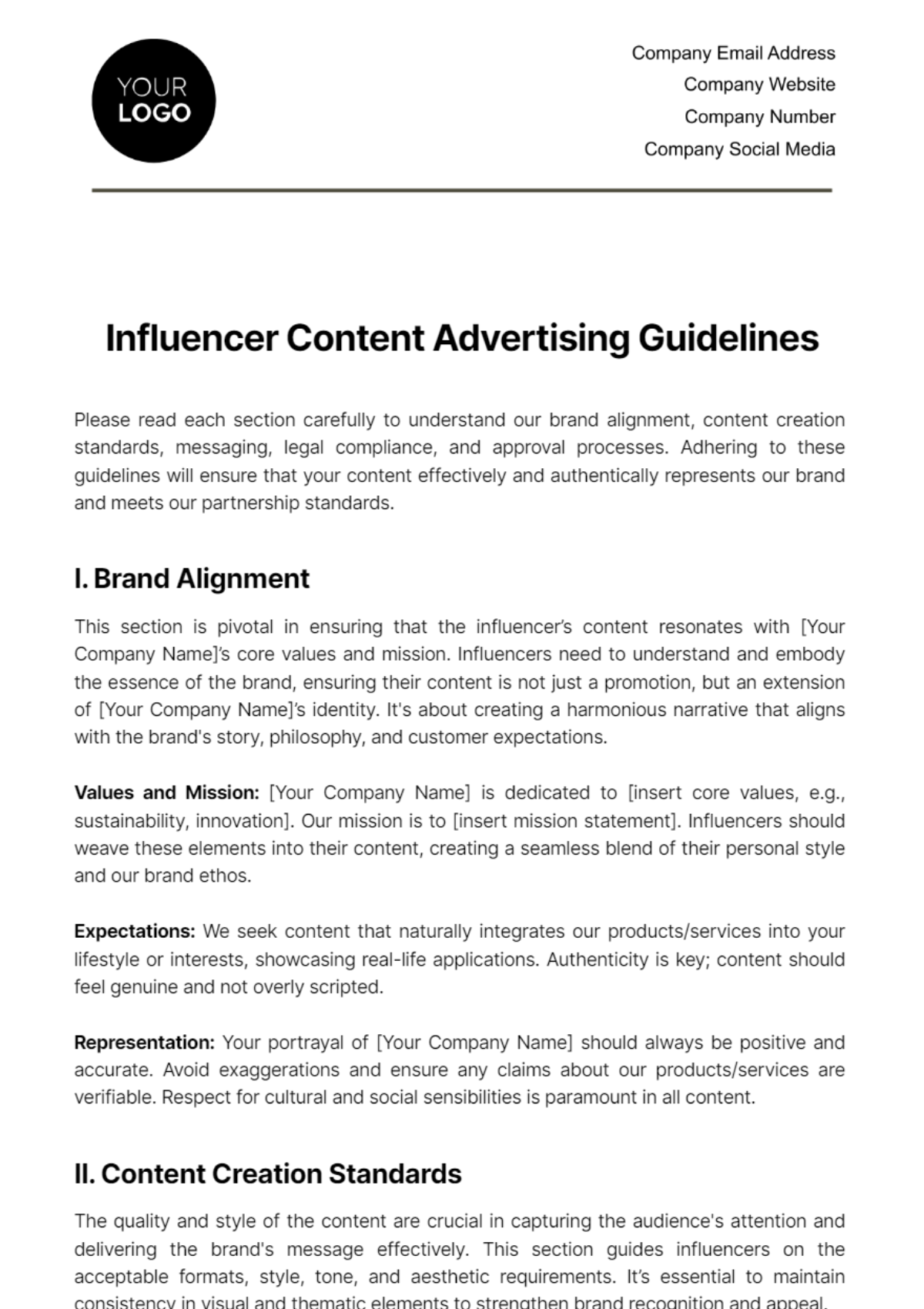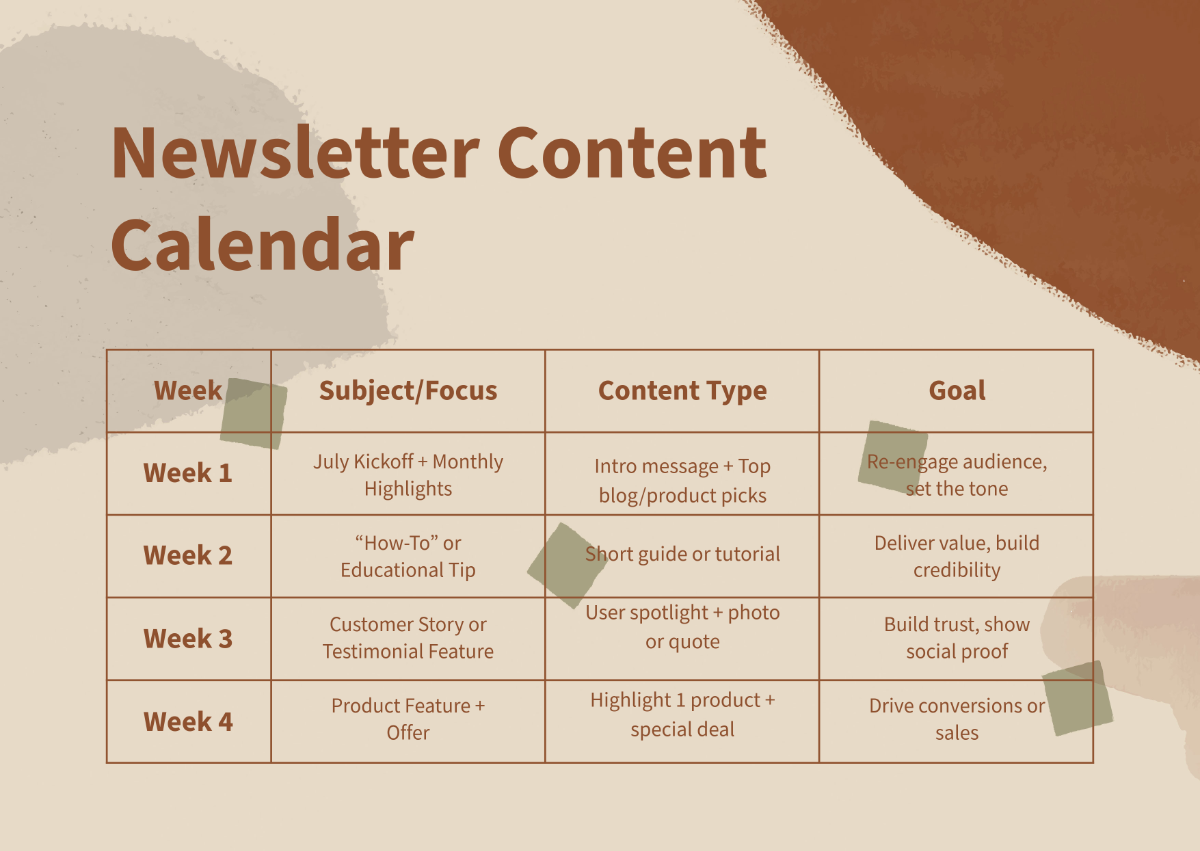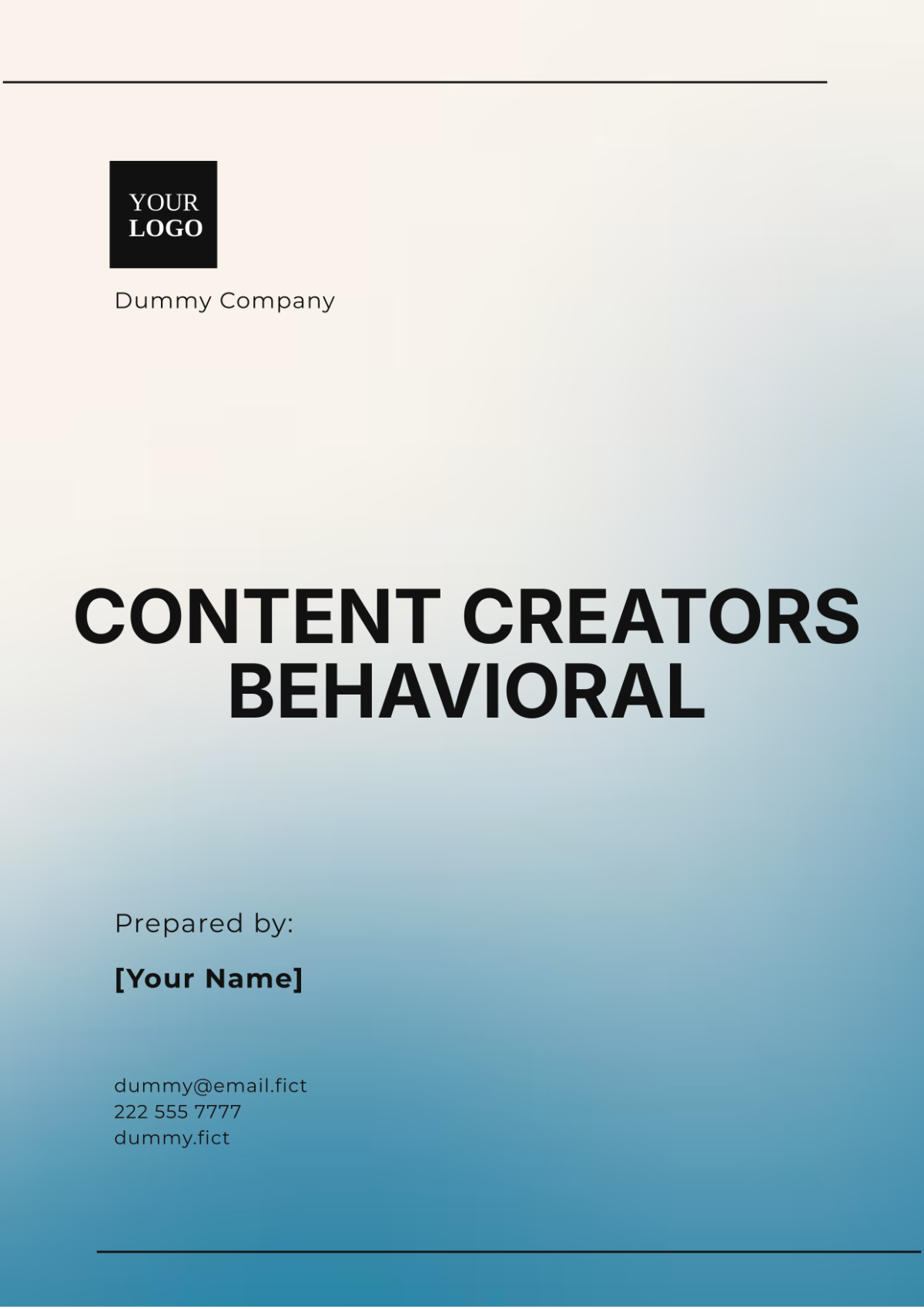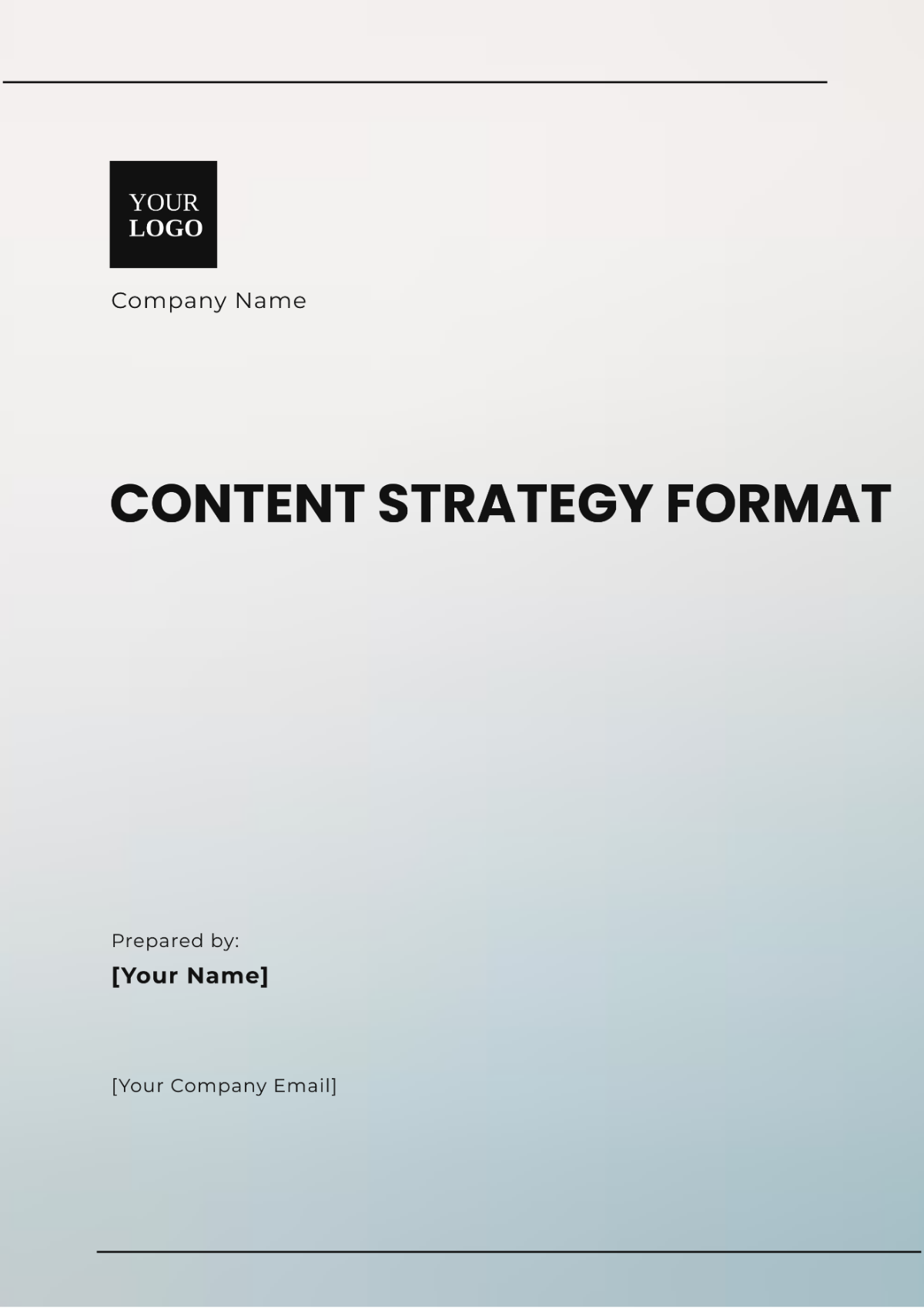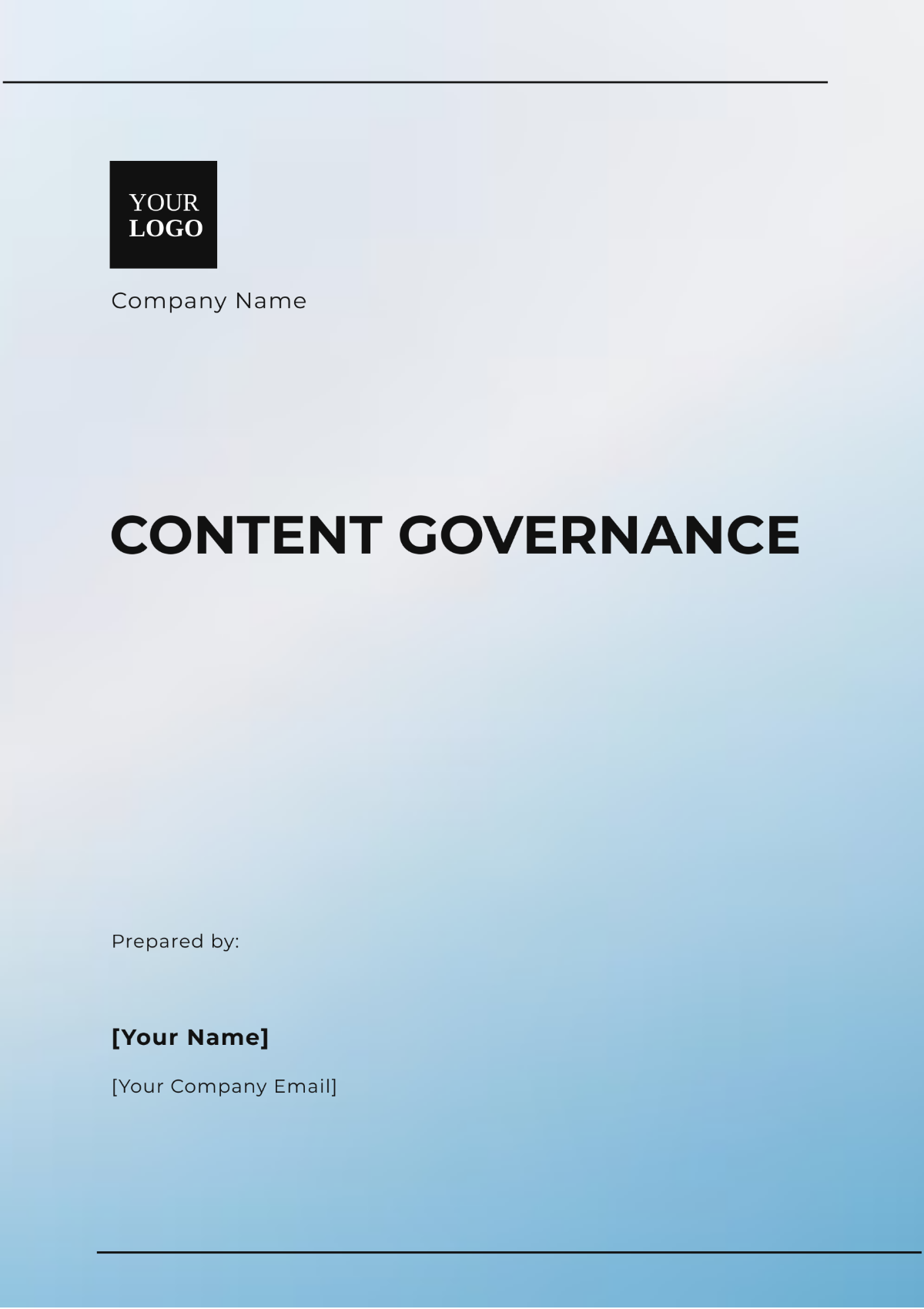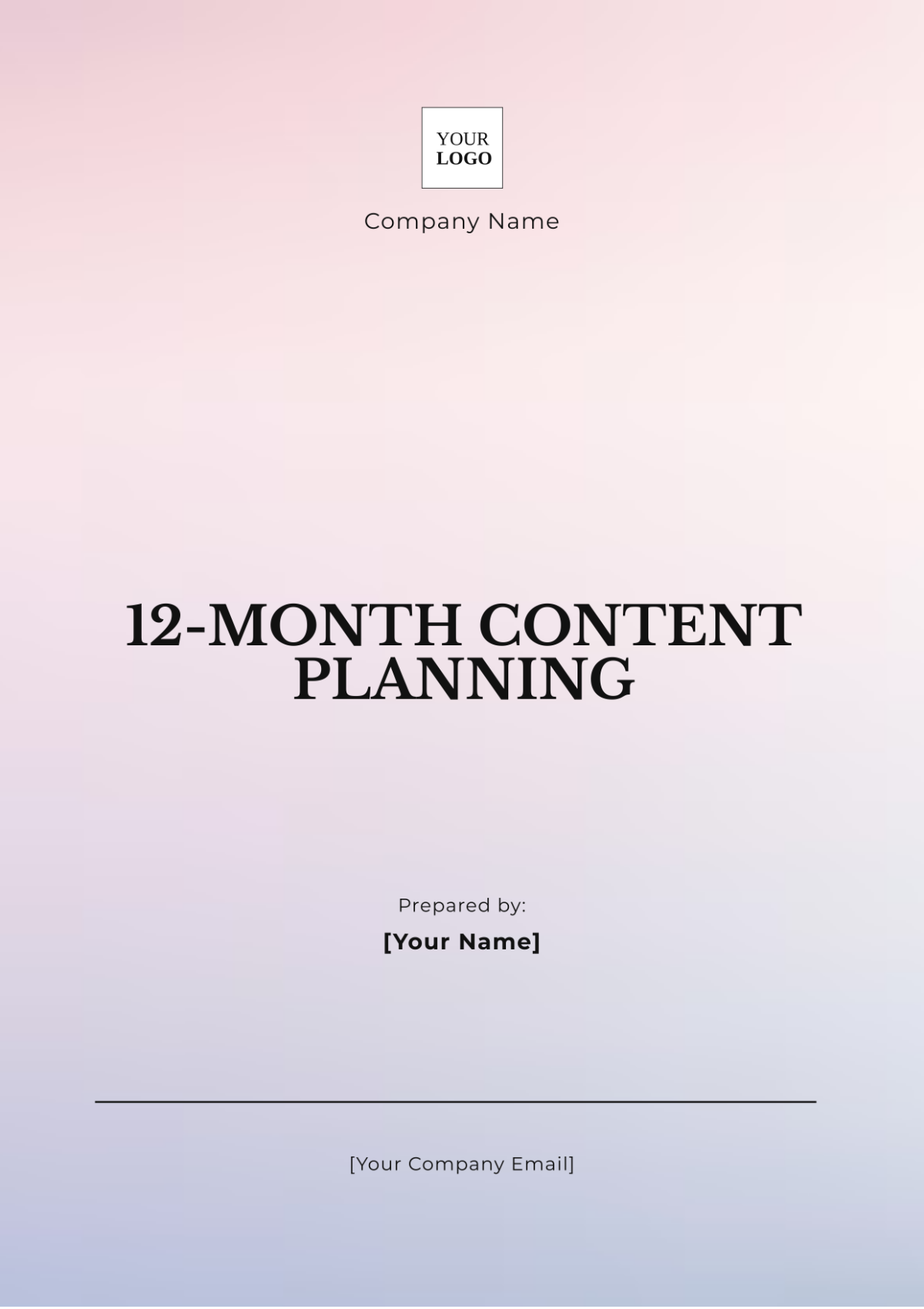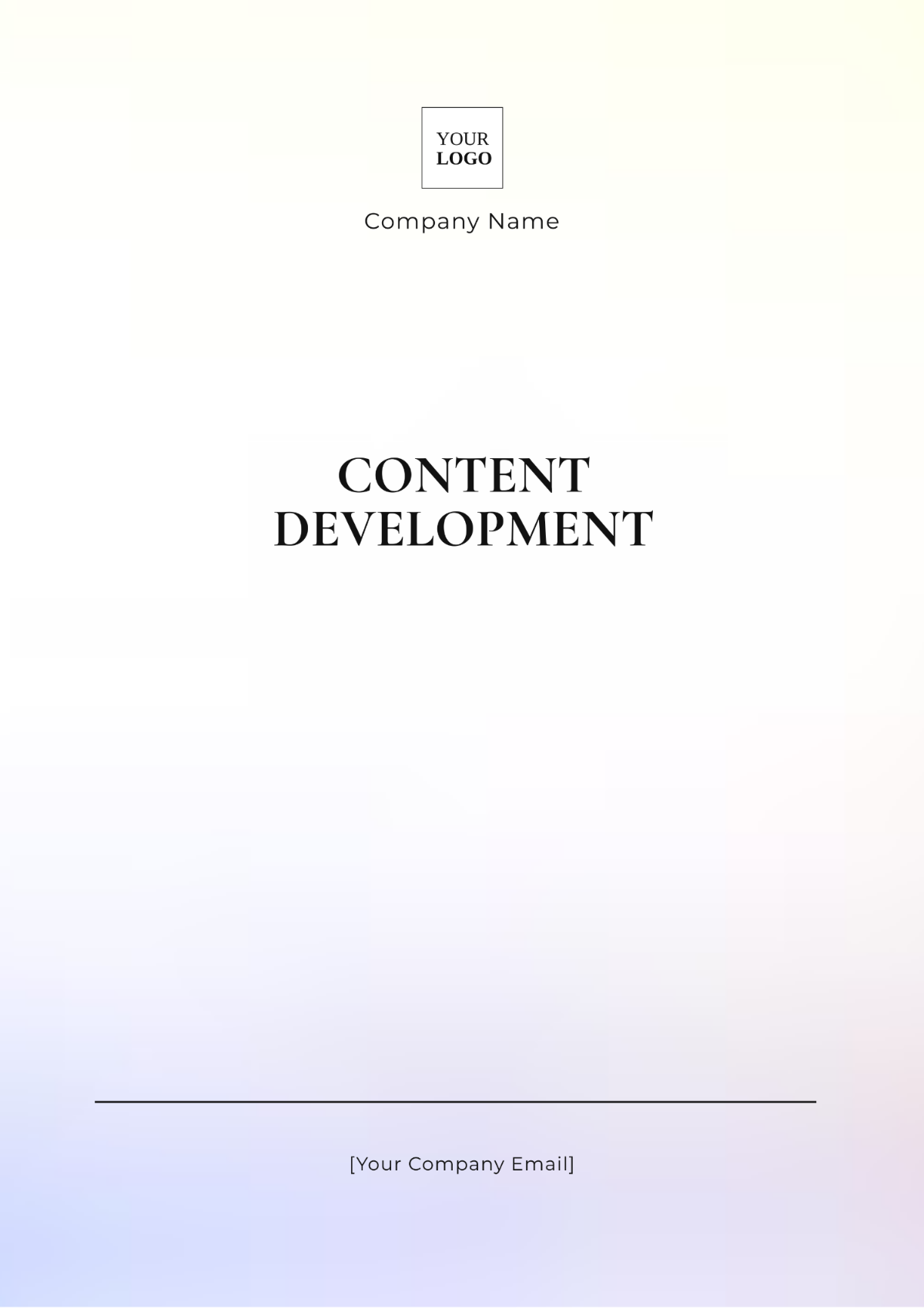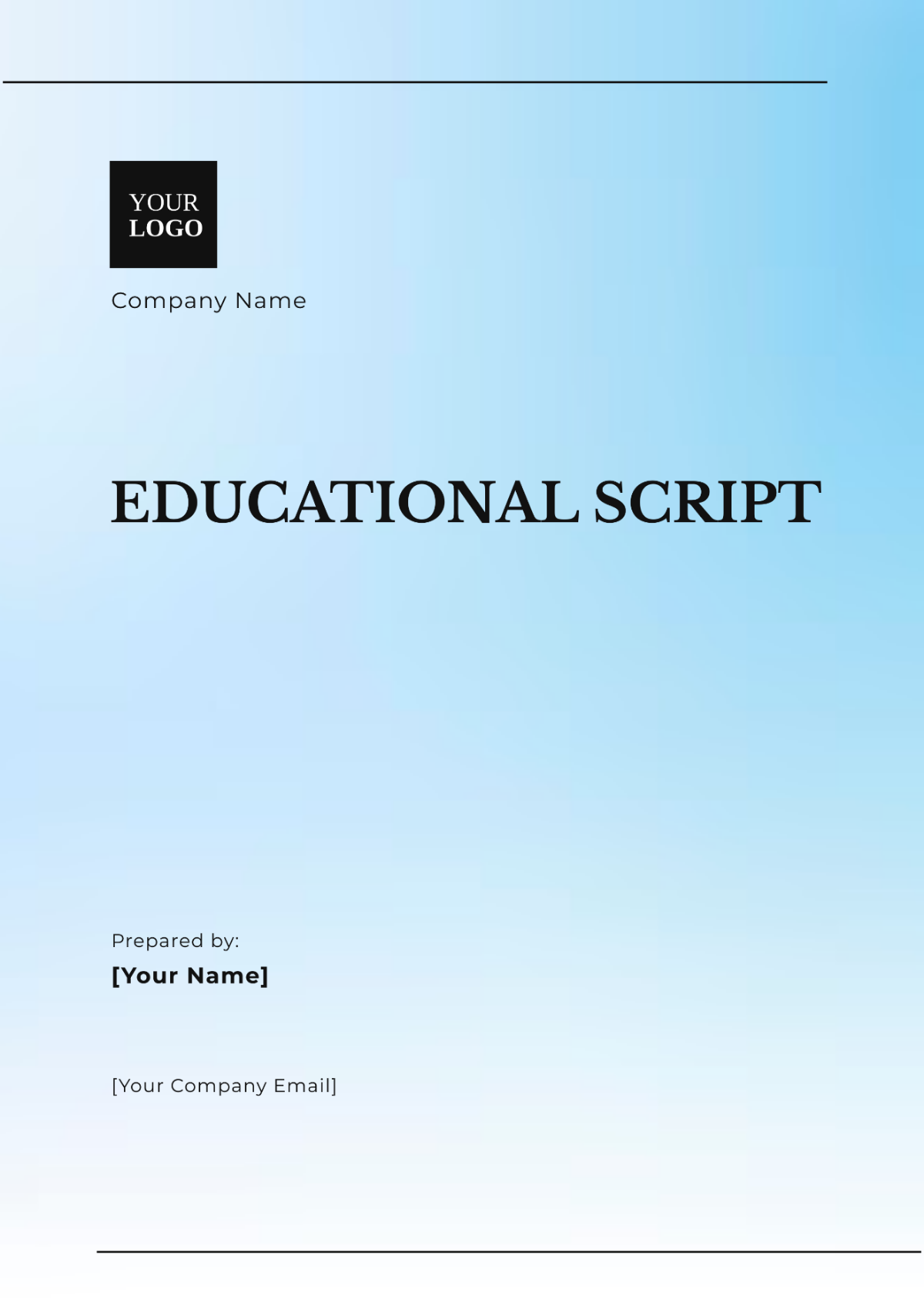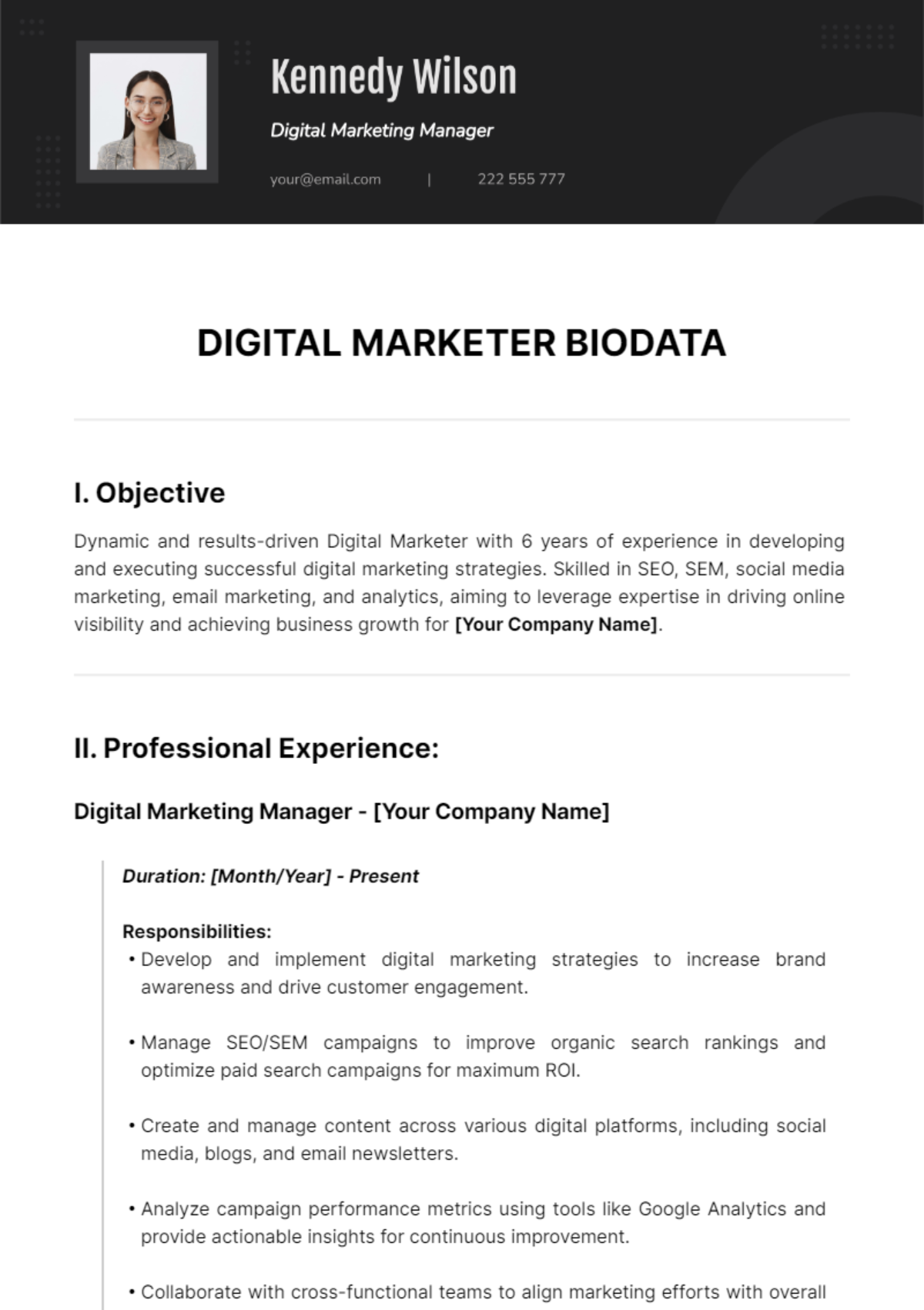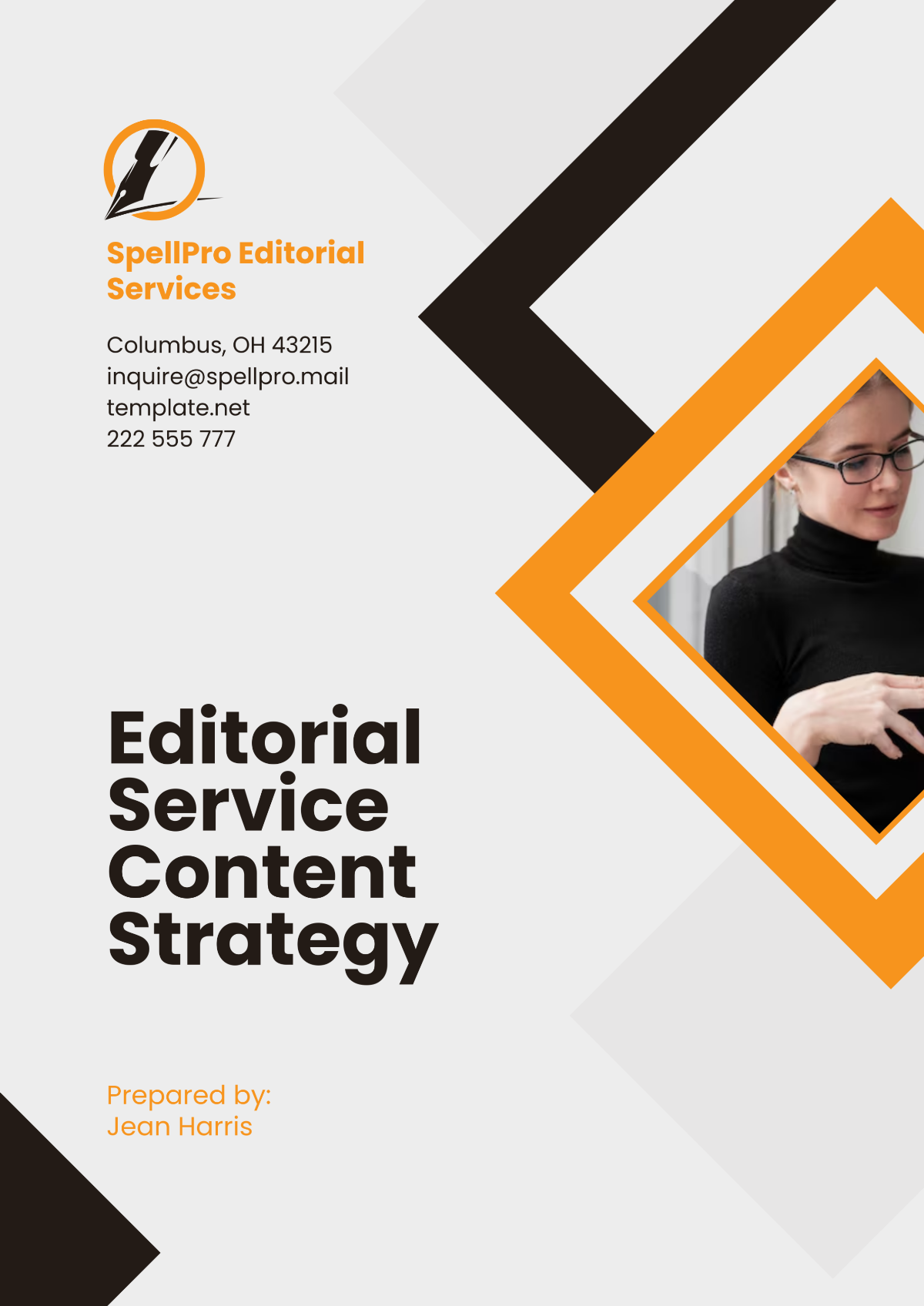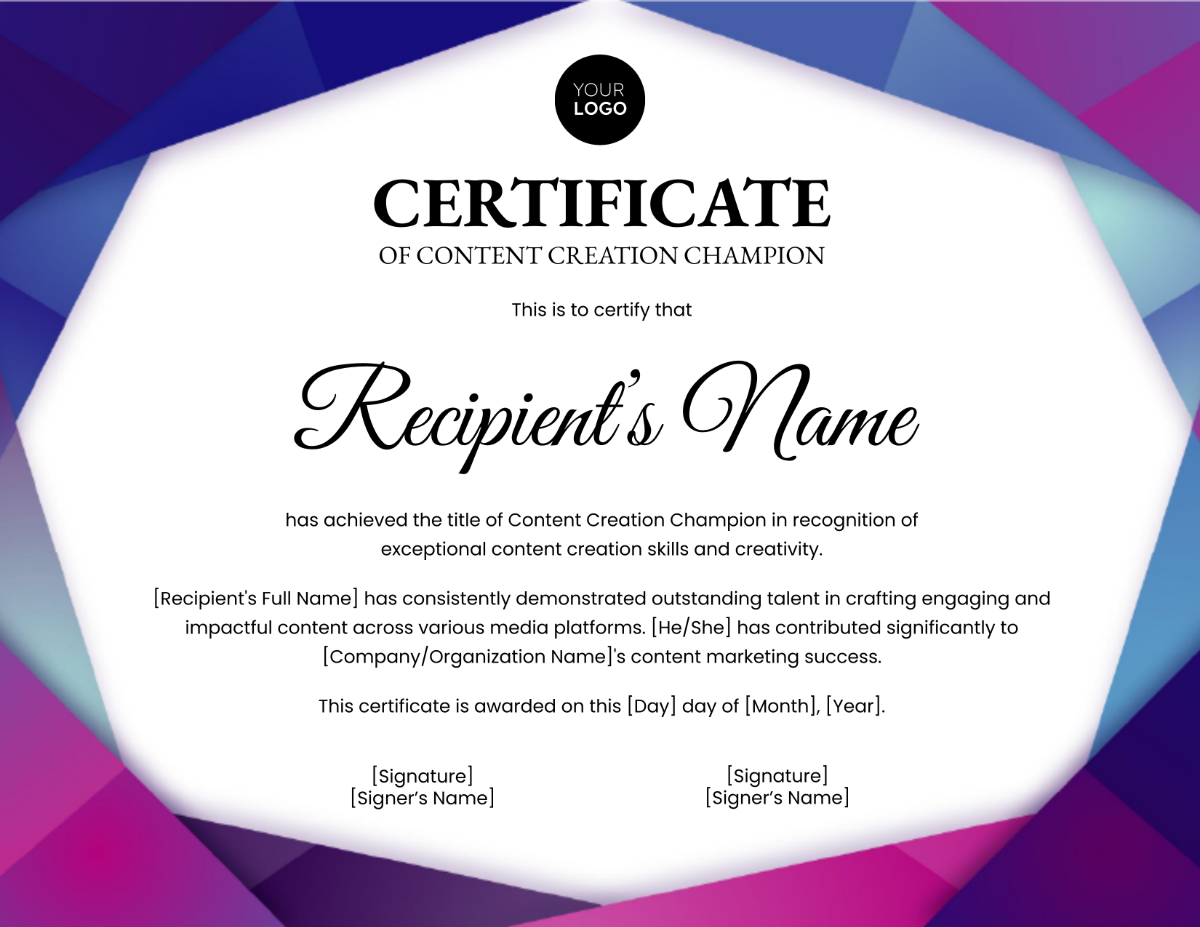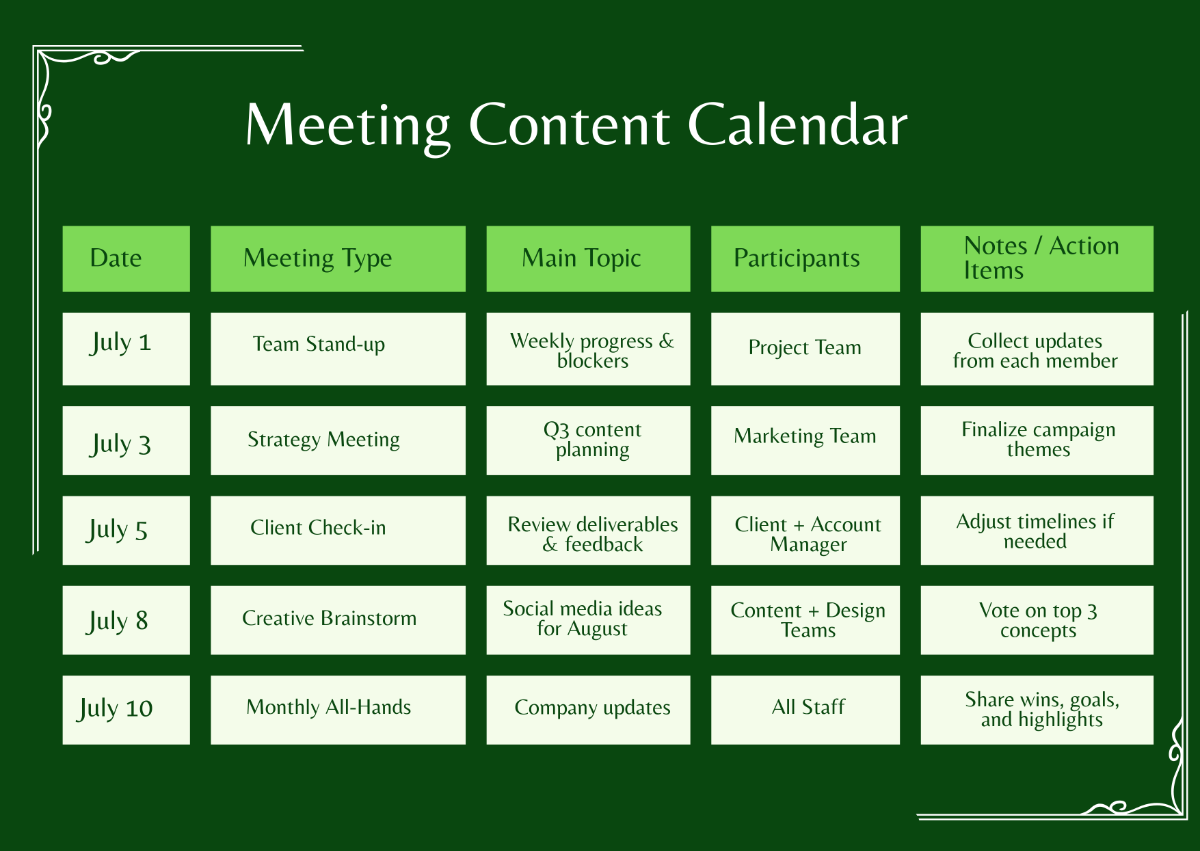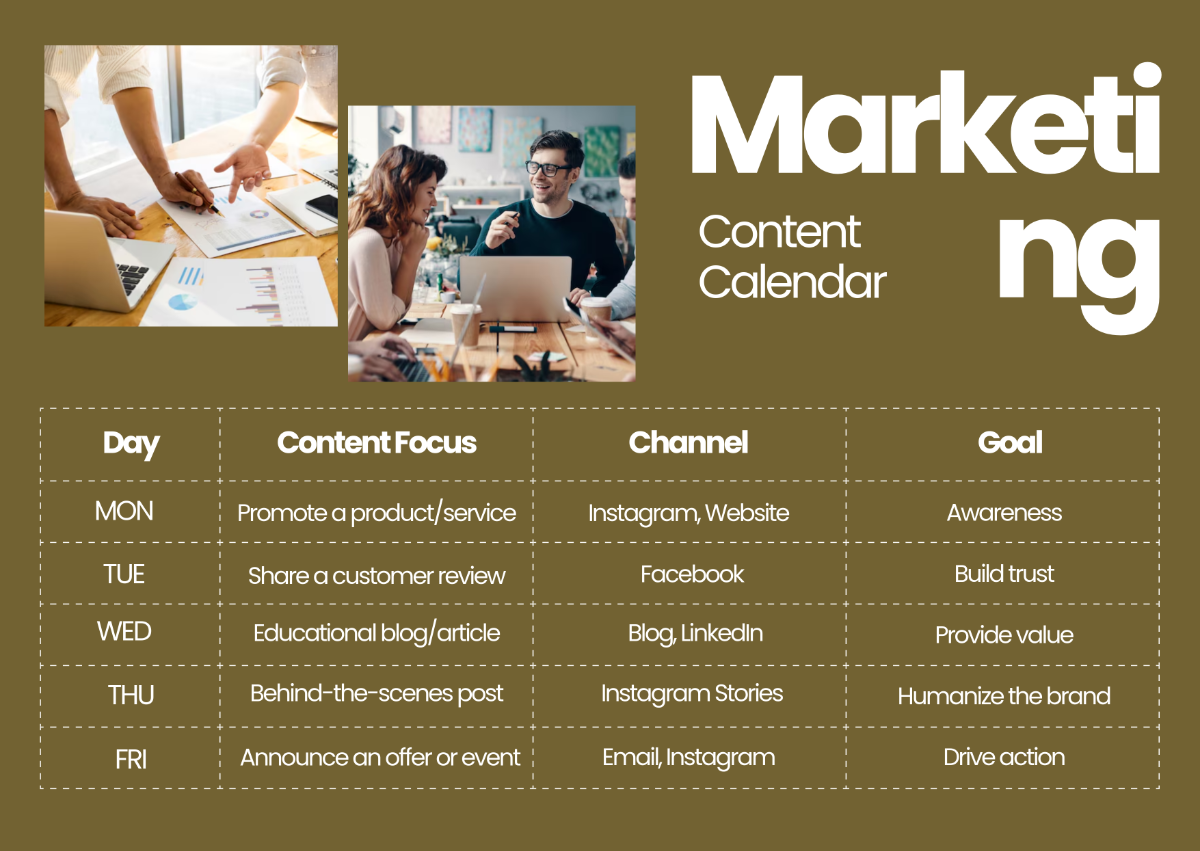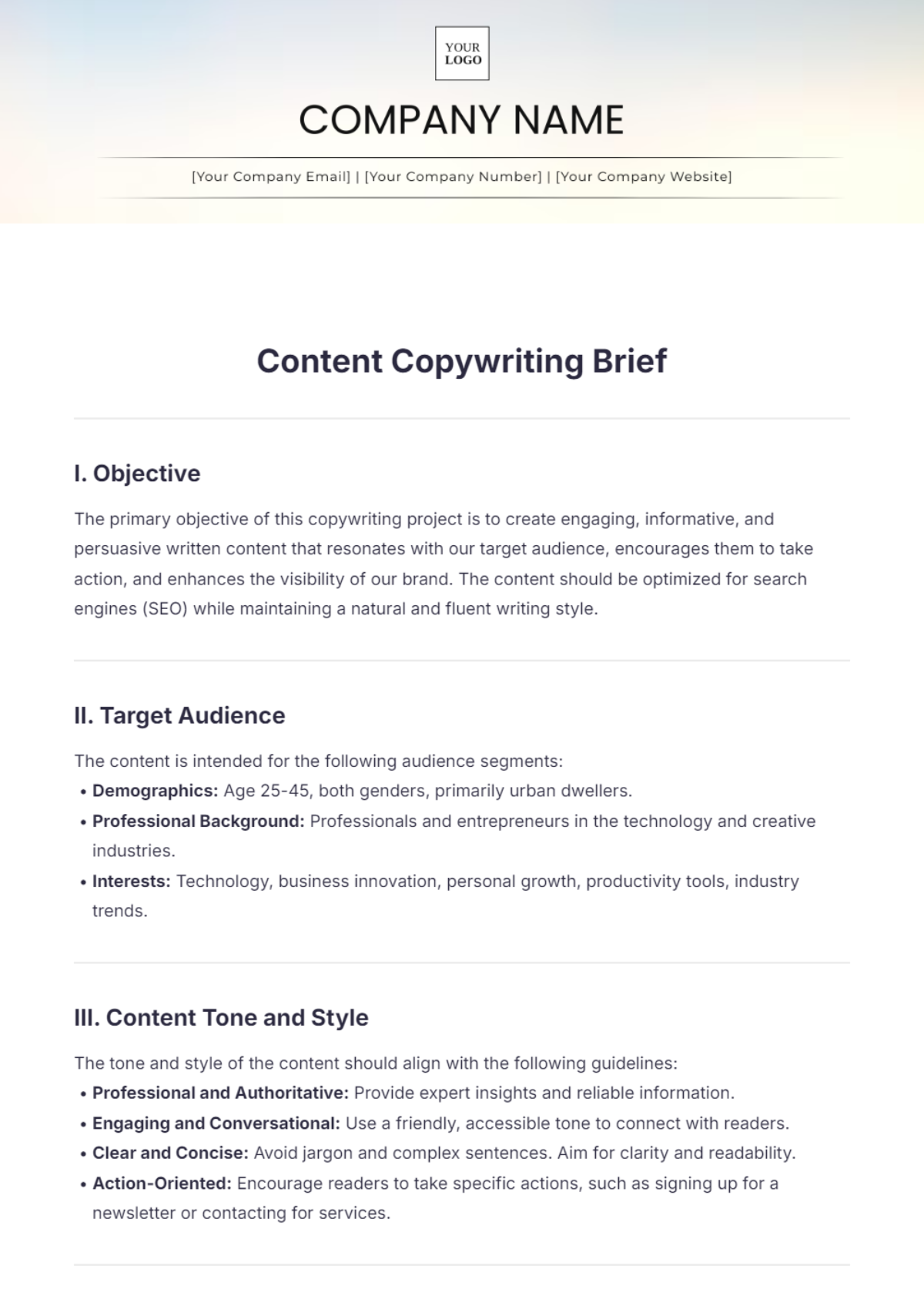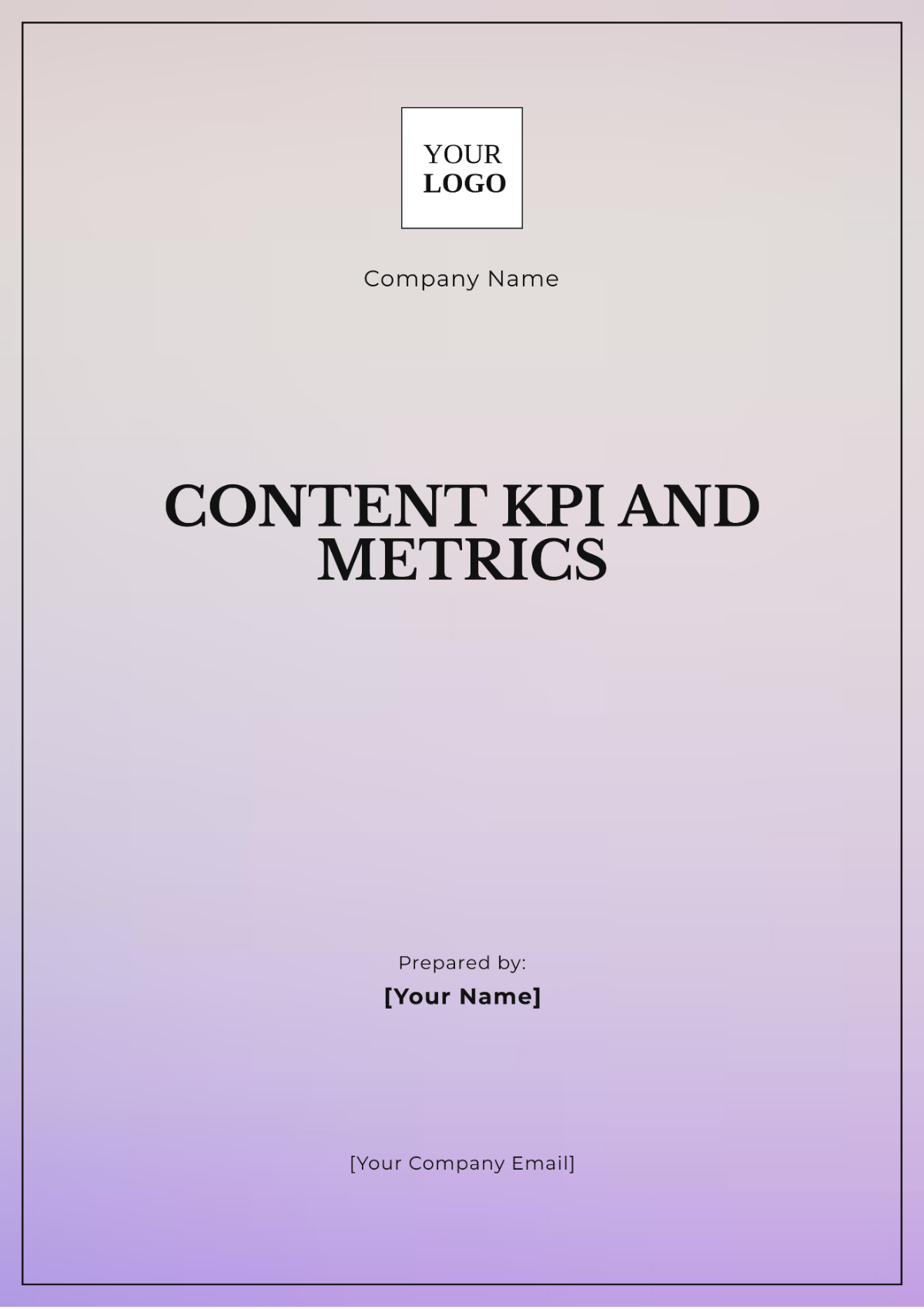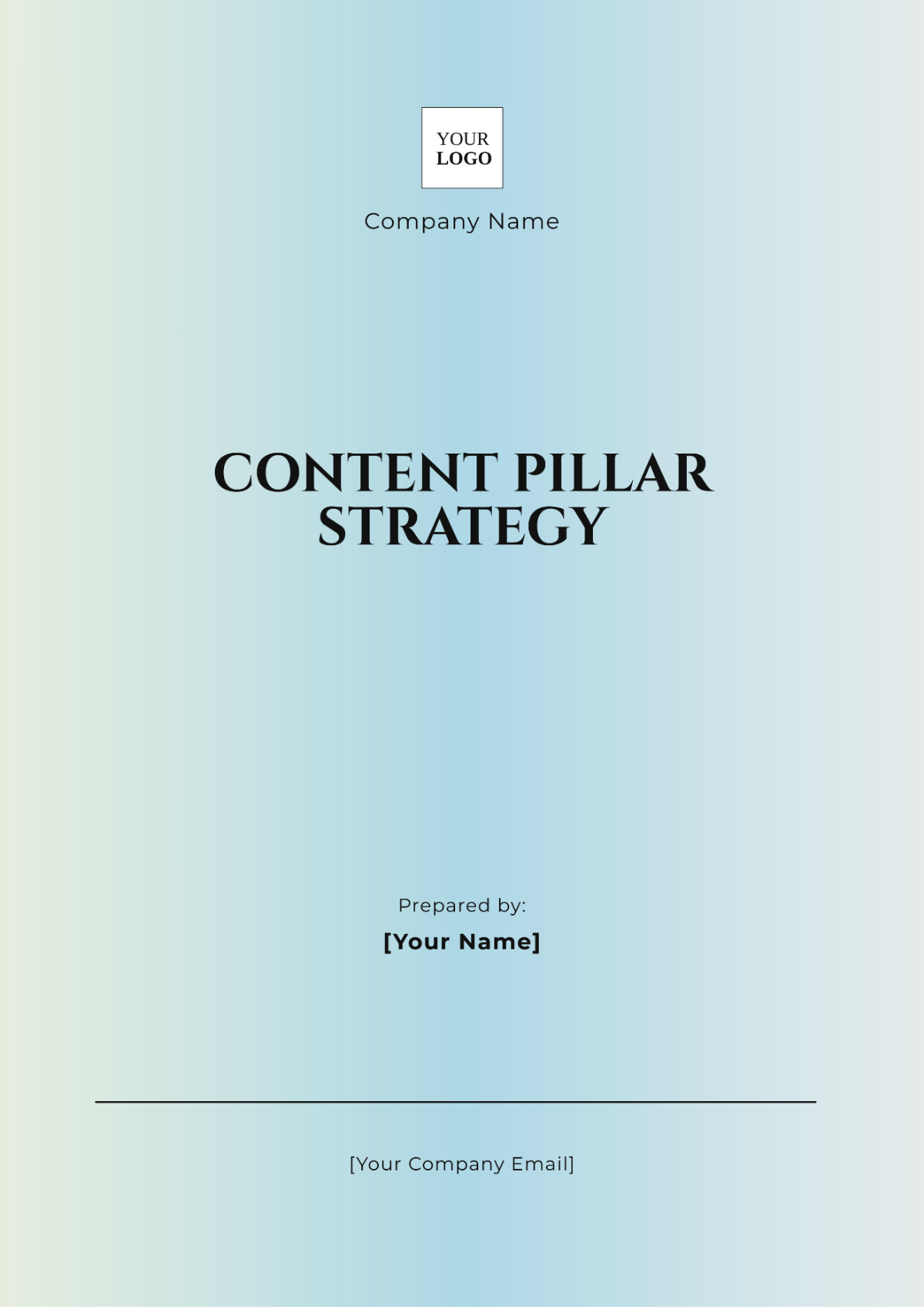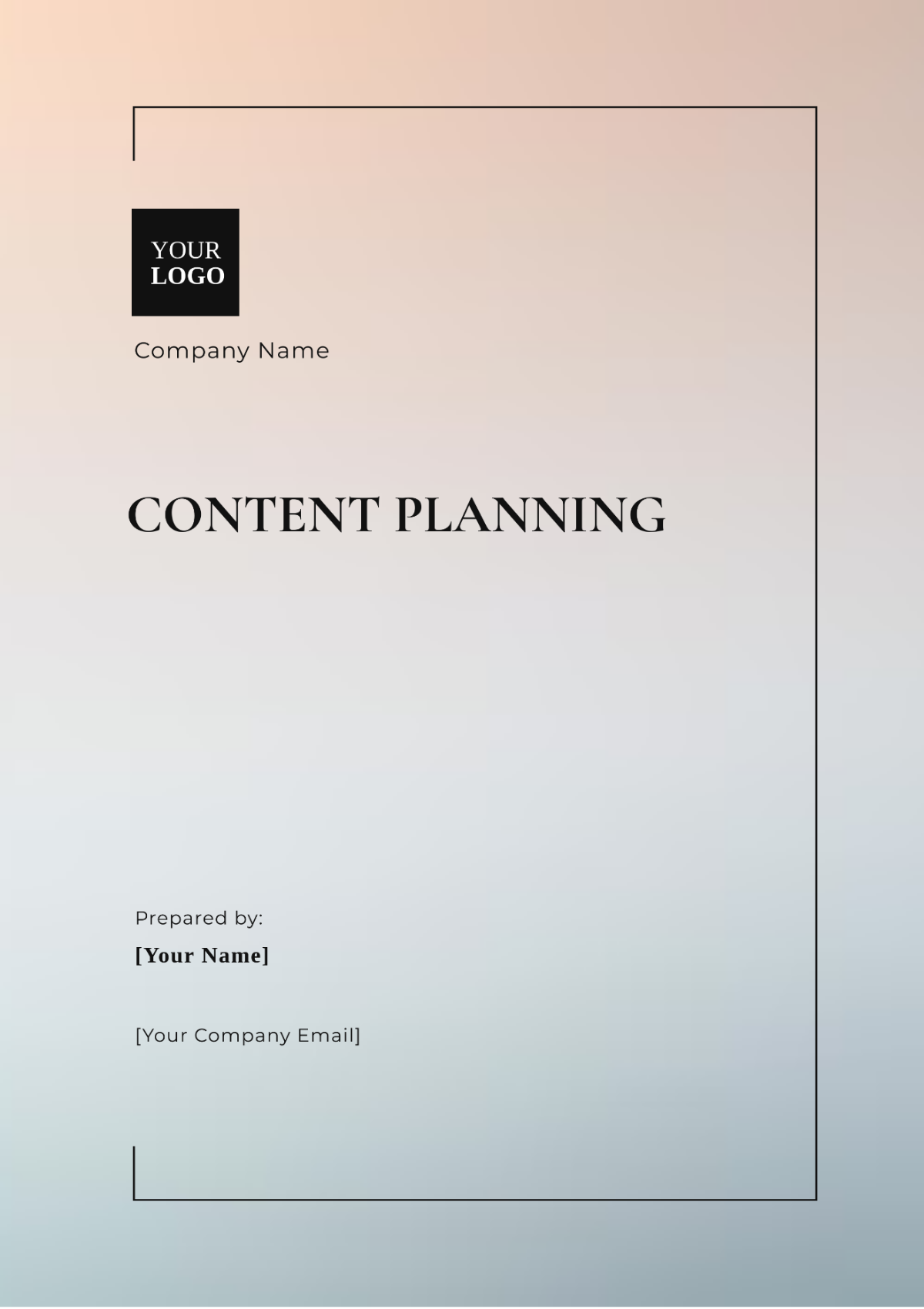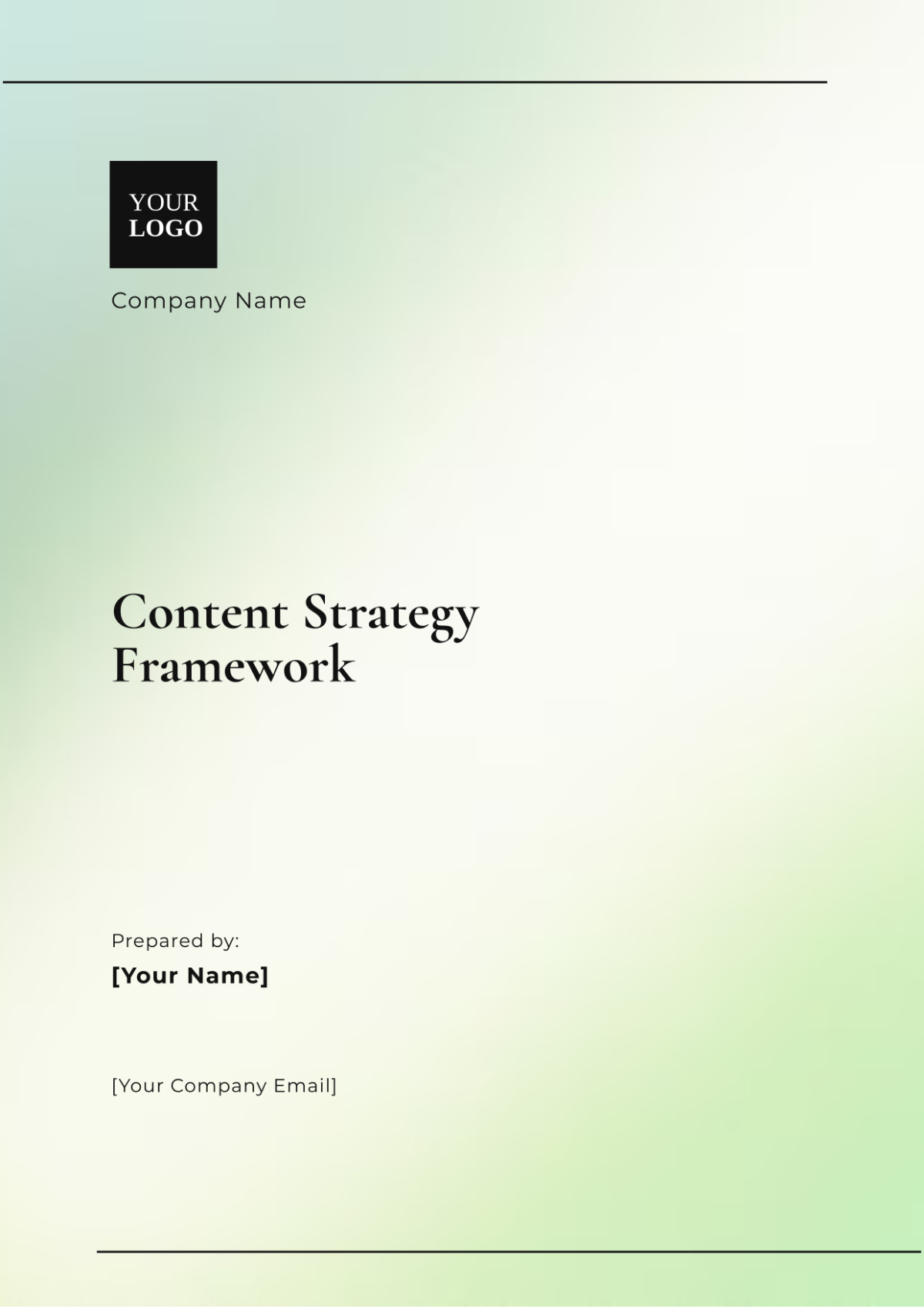Content Development
Prepared by: [YOUR NAME]
I. Introduction
Developing a comprehensive and effective content strategy is essential for achieving marketing goals, engaging with the target audience, and establishing a strong online presence. This document outlines a structured approach to content development that covers various aspects, including research, planning, creation, publishing, and performance evaluation.
II. Research and Audience Analysis
Understanding the target audience and market trends is crucial. Conduct thorough research to gather insights into audience behavior, preferences, and needs.
Method | Description |
|---|---|
Surveys | Collect data directly from the audience to understand their interests and pain points. |
Competitor Analysis | Analyze competitors' content to identify gaps and opportunities. |
Analytics Tools | Use tools like Google Analytics to track audience behavior and content performance. |
III. Content Planning
Develop a content calendar that outlines the types of content to be created, publication dates, and distribution channels.
Identify key themes and topics based on research.
Set content goals and objectives.
Create a timeline for content creation and publication.
IV. Content Creation
Produce high-quality content that resonates with the audience. Ensure the content is engaging, informative, and aligned with brand values.
Text: Blog posts, articles, whitepapers.
Visuals: Infographics, images, videos.
Interactive: Quizzes, polls, interactive tools.
V. Content Optimization
Optimize content for search engines to increase visibility and drive more traffic.
Include relevant keywords naturally within the content.
Use meta tags and descriptions effectively.
Ensure mobile-friendly design and fast loading times.
VI. Publishing and Distribution
Publish content across various platforms to reach a wider audience. Use social media, email marketing, and other channels to distribute the content.
Social Media Platforms
Email Newsletters
Partner Websites
VII. Performance Evaluation
Regularly assess the performance of the content to understand what works and what doesn’t. Use the collected data to refine future strategies.
Metric | Description |
|---|---|
Engagement Rate | Measures likes, comments, shares, and other interactions. |
Traffic | Tracks the number of visitors and page views. |
Conversion Rate | Evaluates how well content leads to desired actions (including sign-ups and purchases). |
VIII. Conclusion
A robust content development strategy is key to achieving marketing success. By following these steps, you can create content that attracts, engages, and converts your target audience effectively.
